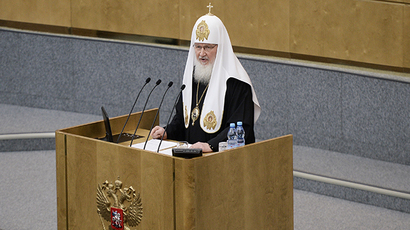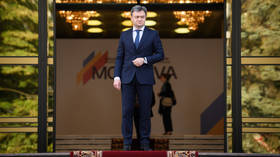Orthodox Church does not oppose sex education in Russian schools – spokesman

The church does not oppose sex education in schools, but urges caution as it can corrupt young minds, the head of the Moscow Patriarchate external relations department has stated.
“If these lessons turn into corruption of the young, as it unfortunately happens very often, the Church would definitely oppose them. At the same time, the situation in which children do not know some very elementary things is also wrong,” Metropolitan Bishop Hilarion said in an interview with Rossiya-24.
The cleric added that certain lessons were necessary to educate children about measures that can prevent them from contracting HIV or some other sexually transmitted disease, but emphasized that sex education in schools must be done in a “chaste” way.
The Metropolitan Bishop also maintained that the main sex education for children should be provided in the family, but noted that many parents in Russia evade the topic, regardless of the consequences it can have.
The Russian Orthodox Church has a very conservative position on issues concerning sex and marriage, strictly opposing gay marriage, abortion, and surrogacy.
In his first ever parliamentary speech, delivered in early 2015, Patriarch Kirill called upon Russian lawmakers to begin a campaign against abortions, starting with canceling state sponsorship for the procedure and aiming at a total nationwide ban.
In October 2013, an official representative of the Russian Orthodox Church attacked abortion and surrogacy as a “mutiny against God,” causing a group of Lower House lawmakers to start discussing a total ban on the practices, which, they said, threaten to wipe out the Russian population. The initiative gained little support from other politicians, who argued that a ban would only lead to more illegal abortions, which are much more dangerous and leave many women infertile, only aggravating Russia’s demographic problems. Eventually, the plan was scrapped and its sponsors played down their own statements, saying that they merely wanted to draw attention to the problem and start a discussion.













